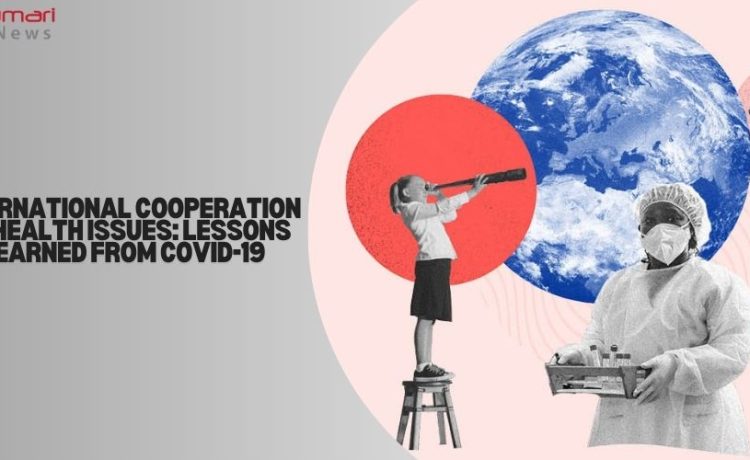The COVID-19 pandemic has been one of the most significant global challenges in recent history, exposing vulnerabilities in health systems worldwide and highlighting the need for robust international cooperation.
As countries grappled with the spread of the virus, the lessons learned during this crisis have underscored the importance of collaborative efforts in addressing health issues.
This article explores the key lessons learned from covid-19 pandemic regarding international cooperation in health, emphasizing the necessity for a unified approach to future health crises.
The Importance of Global Collaboration

The COVID-19 pandemic demonstrated that health threats do not recognize borders. As the virus spread rapidly across the globe, it became evident that no single nation could effectively combat the crisis in isolation. The interconnectedness of our world necessitated a collective response, underscoring the importance of international cooperation.
Countries needed to share data, research, and resources to understand the virus better and develop effective strategies for prevention and treatment. Collaborative efforts facilitated the rapid development of vaccines, with initiatives like COVAX, a global initiative aimed at equitable access to COVID-19 vaccines, emerging as a crucial platform for cooperation.
Key Lessons Learned
- Data Sharing and Transparency: One of the most critical lessons learned from covid-19 pandemic is the necessity of timely and transparent data sharing. Early in the pandemic, countries that communicated openly about case numbers, testing rates, and public health measures were better positioned to respond effectively. The World Health Organization (WHO) played a vital role in coordinating data collection and dissemination. Future health crises will require countries to commit to transparency and collaboration in sharing critical health data to facilitate quicker responses.
- Equitable Access to Resources: The pandemic highlighted the stark inequalities in access to healthcare resources, including vaccines and medical supplies. Wealthier nations initially secured large quantities of vaccines, leaving low- and middle-income countries vulnerable. The inequity in access underscored the need for a global framework that ensures equitable distribution of medical resources during health emergencies. Initiatives like COVAX have begun to address this, but further efforts are needed to institutionalize equity in global health responses.
- Strengthening Global Health Systems: COVID-19 exposed weaknesses in health systems worldwide, from inadequate funding to insufficient staffing and resources. The pandemic emphasized the importance of strengthening health systems globally, particularly in low-resource settings. This includes investing in healthcare infrastructure, training healthcare workers, and ensuring robust supply chains for medical essentials. International cooperation can facilitate knowledge sharing and capacity building, ensuring that all countries are better prepared for future health crises.
- Collaborative Research and Innovation: The rapid development of COVID-19 vaccines was a remarkable feat of scientific collaboration. Researchers from around the world worked together, sharing findings and innovations to accelerate the vaccine development process. This collaborative spirit must be fostered in future health research, allowing for the rapid exchange of information and resources to tackle emerging health threats. Collaborative frameworks can help streamline research efforts and ensure that breakthroughs benefit all countries.
- Crisis Communication: Effective communication during a health crisis is essential for public trust and compliance with health measures. The pandemic highlighted the role of clear, consistent messaging from governments and health organizations. International cooperation can enhance communication strategies, enabling countries to share best practices and develop unified messaging that resonates with diverse populations.
Looking Ahead

As we move forward from the COVID-19 pandemic, it is crucial to apply the lessons learned to strengthen international cooperation on health issues. This requires a commitment from governments, health organizations, and communities to work together proactively rather than reactively.
Global health security must become a priority, with investments in healthcare infrastructure, research, and equitable access to resources at the forefront. By fostering a culture of collaboration, we can create a resilient global health system capable of responding effectively to future challenges.
The COVID-19 pandemic has been a wake-up call for the world, emphasizing the need for international cooperation in addressing health issues. The lessons learned from covid-19 during this crisis—data sharing, equitable access, system strengthening, collaborative research, and effective communication—are vital for enhancing our global response to future health threats.
By embracing these lessons, we can build a healthier, more resilient world, ensuring that all individuals, regardless of their location, have access to the healthcare they need in times of crisis.







